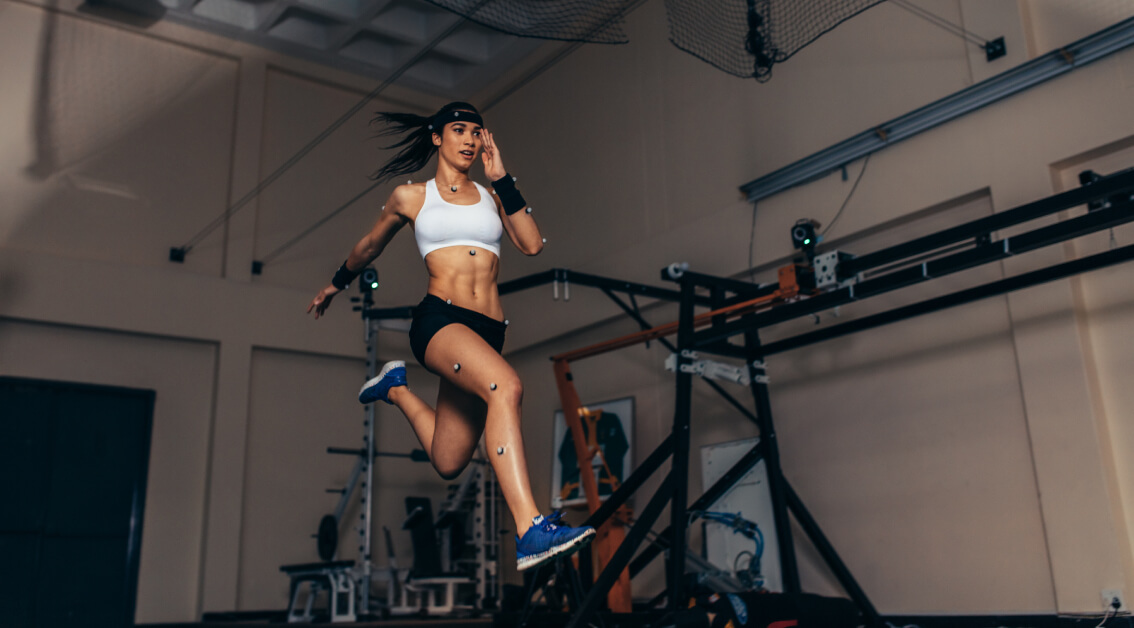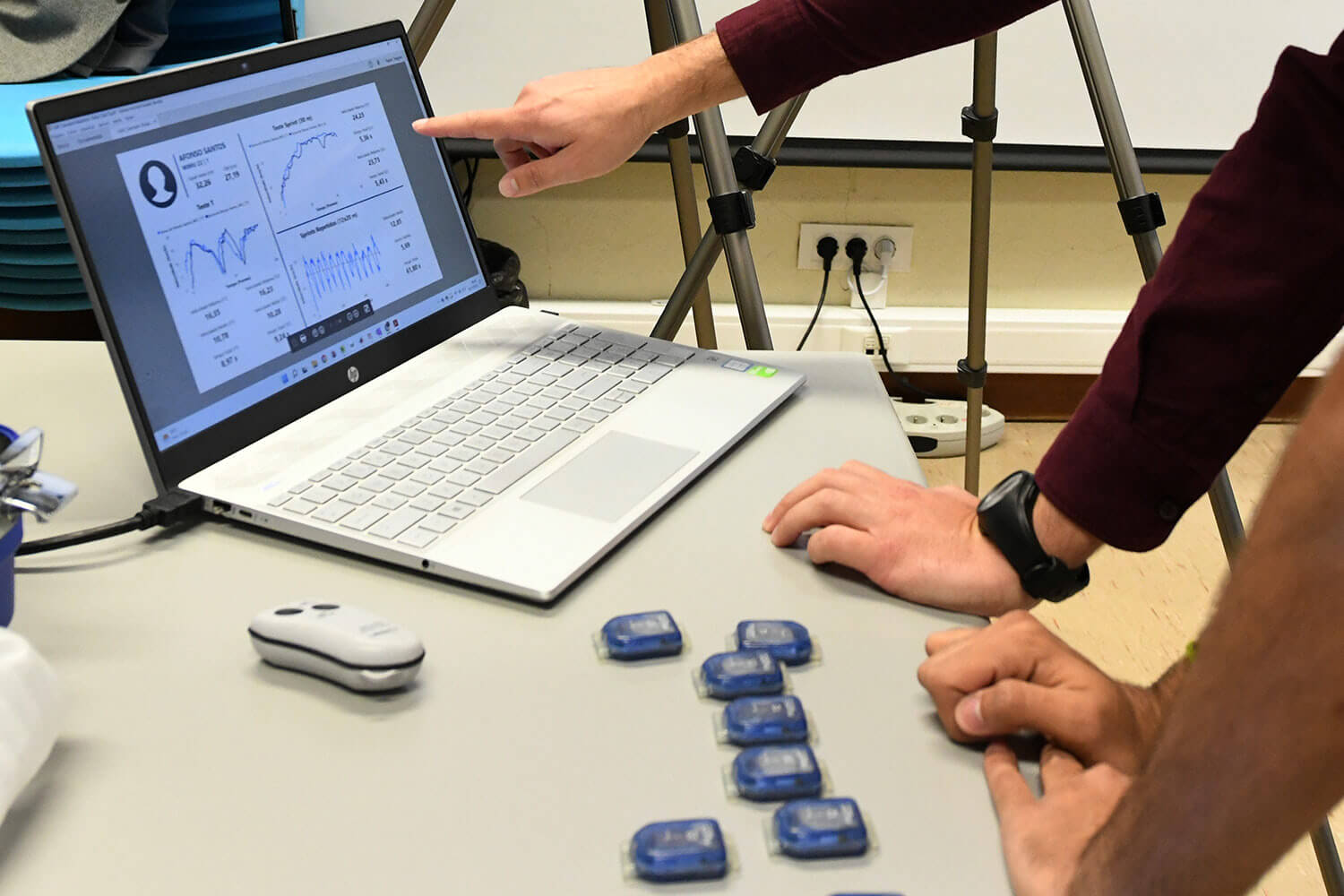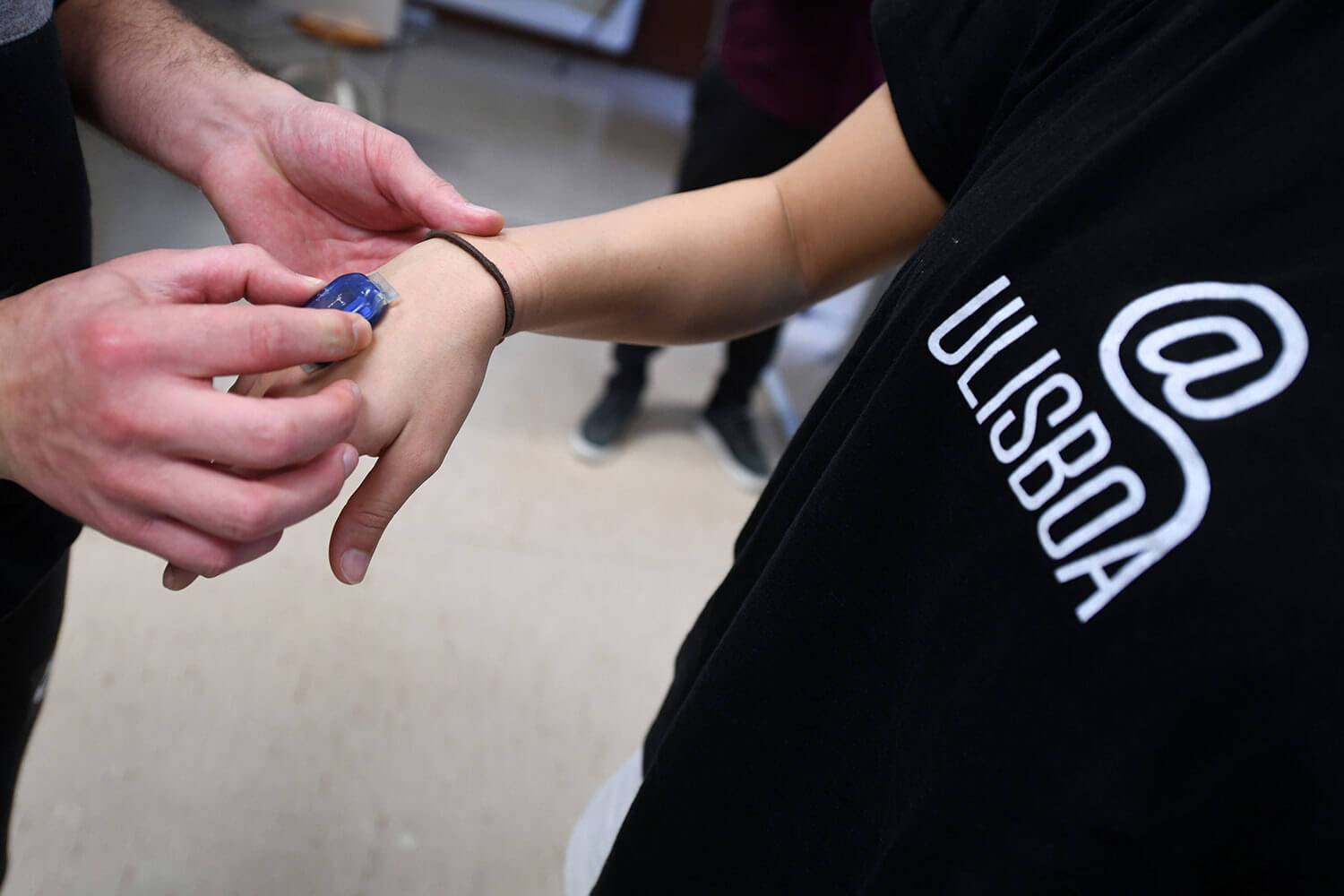Laboratório
Artigos
The empowering variability of affordances of nature: Why do exercisers feel better after performing the same exercise in natural environments than in indoor environments?
Araújo, D., Brymer, E., Brito, H., Withagen, R., & Davids, K. (2019). The empowering variability of affordances of nature: Why do exercisers feel better after performing the same exercise in natural environments than in indoor environments?. Psychology of Sport and Exercise, 42, 138–145. doi: 10.1016/j.psychsport.2018.12.020.
Ecological cognition: Expert decision-making behaviour in sport
Araújo, D., Hristovski, R., Seifert, L., Carvalho, J., & Davids, K. (2019). Ecological cognition: Expert decision-making behaviour in sport. Review of Sport and Exercise Psychology, 12(1), 1-25. doi: 10.1080/1750984X.2017.1349826.
Jump higher, run faster: effects of diversified sport participation on talent identification and selection in youth basketball
Arede, J., Esteves, P., Ferreira, A. P., Sampaio, J., & Leite, N. (2019). Jump higher, run faster: effects of diversified sport participation on talent identification and selection in youth basketball. Journal of Sports Sciences, 37(19), 2220–2227. doi: 10.1080/02640414.2019.1626114.
Maturational development as a key aspect in physiological performance and national-team selection in elite male basketball players
Arede, J., Ferreira, A. P., Gonzalo-Skok, O., & Leite, N. (2019). Maturational development as a key aspect in physiological performance and national-team selection in elite male basketball players. International Journal of Sports Physiology and Performance, 14(7), C902–910. doi: 10.1123/ijspp.2018-0681.
Principles of nonlinear pedagogy in sport practice
Correia, V., Carvalho, J., Araújo, D., Pereira, E., & Davids, K. (2019). Principles of nonlinear pedagogy in sport practice. Physical Education and Sport Pedagogy, 24(2), 117–132. doi: 10.1080/17408989.2018.1552673.
Embodied cognition with and without mental representations: The case of embodied choices in sports
Raab, M., & Araújo, D. (2019). Embodied cognition with and without mental representations: The case of embodied choices in sports. Frontiers in Psychology, 10, 1825. doi: 10.3389/fpsyg.2019.01825.
The past, present and future of research on judgment and decision making in sport
Raab, M., Bar-Eli, M., Plessner, H., & Araújo, D. (2019). he past, present and future of research on judgment and decision making in sport. Psychology of Sport and Exercise, 42, 25–32. doi: 10.1016/j.psychsport.2018.10.004.
Differences in maturity, morphological and physical attributes between players selected to the primary and secondary teams of a Portuguese Basketball elite academy
Ramos, S., Volossovitch, A., Ferreira, A. P., Fragoso, I., & Massuça, L. (2019). Differences in maturity, morphological and physical attributes between players selected to the primary and secondary teams of a Portuguese Basketball elite academy. Journal of Sports Sciences, 37(15), 1681–1689. doi: 10.1080/02640414.2019.1585410.
Training experience and maturational, morphological, and fitness attributes as individual performance predictors in male and female under-14 portuguese elite basketball players
Ramos, S., Volossovitch, A., Ferreira, A. P., Fragoso, I., & Massuça, L. (in press). Training experience and maturational, morphological, and fitness attributes as individual performance predictors in male and female under-14 portuguese elite basketball players. Journal of Strength and Conditioning Research, doi: 10.1519/jsc.0000000000003042.
Evaluating weaknesses of “cognitive-perceptual training” and “brain training” methods in sport: An ecological dynamics critique
Renshaw, I., Davids, K., Araújo, D., Lucas, A., Roberts, W. M., Newcombe, D. J., & Franks, B. (2019). Evaluating weaknesses of “cognitive-perceptual training” and “brain training” methods in sport: An ecological dynamics critique. Frontiers in Psychology, 9, 2468. doi: 10.3389/fpsyg.2018.02468.
Exploiting bi-directional self-organising tendencies in team sports: the role of the game model and tactical principles of play
Ribeiro, J., Davids, K., Araújo, D., Guilherme, J., Silva, P., & Garganta, J. (2019). Exploiting bi-directional self-organising tendencies in team sports: the role of the game model and tactical principles of play. Frontiers in Psychology, 10, 2213. doi: 10.3389/fpsyg.2019.02213.
The role of hypernetworks as a multilevel methodology for modelling and understanding dynamics of team sports performance
Ribeiro, J., Davids, K., Araújo, D., Silva, P., Ramos, J., Lopes, R., & Garganta, J. (2019). The role of hypernetworks as a multilevel methodology for modelling and understanding dynamics of team sports performance. Sports Medicine, 49(9), 1337–1344. doi: 10.1007/s40279-019-01104-x.
Predicting volleyball serve-reception at group level
Paulo, A., Zaal, F., Seifert, L., Fonseca, S., & Araújo, D. (2018). Predicting volleyball serve-reception at group level. Journal of Sports Sciences, 36(22), 2621-2630. doi: 10.1080/02640414.2018.1473098.
Football refereeing: An integrative review
Pina, J. A. E., Passos, A., Araújo, D., & Maynard, M. T. (2018). Football refereeing: An integrative review. Psychology of Sport and Exercise, 35, 10-26. doi: 10.1016/j.psychsport.2017.10.006.
What's next in complex networks? Capturing the concept of attacking play in invasive team sports
Ramos, J., Lopes, R. J., & Araújo, D. (2018). What's next in complex networks? Capturing the concept of attacking play in invasive team sports. Sports Medicine, 48(1), 17-28. doi: 10.1007/s40279-017-0786-z.








